Are you considering canceling your trash collection service but unsure how to go about it? It can feel overwhelming, but don't worryâwriting a cancellation letter is easier than you think. In this article, we'll guide you through a simple template that ensures you cover all the necessary details while maintaining a polite tone. So, let's dive in and explore how to craft the perfect cancellation letter that suits your needs!
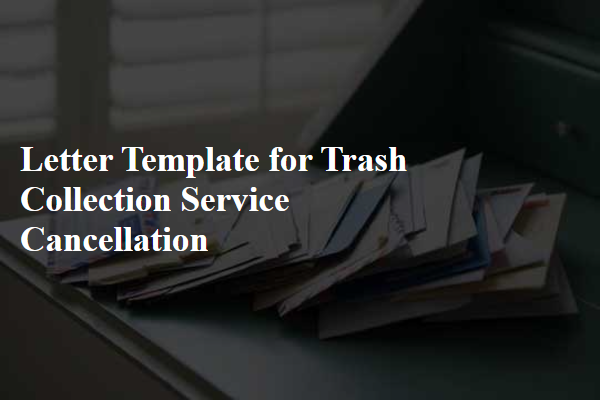
Contract information
When a customer opts to cancel a trash collection service, relevant contract information plays a crucial role in ensuring a smooth termination process. Customers should gather essential details from their contract, including the service provider's name, contract start date, and account number for identification purposes. Cancellation terms, including the required notice period (often 30 days), should be clearly understood to avoid any premature fees. Furthermore, understanding any pro-rated charges that may apply based on the service usage before cancellation is important. It is advisable to document the cancellation request date and method of communication (such as email or certified mail), ensuring confirmation of the cancellation is received for records.
Cancellation reason
Cancellation of a trash collection service often arises from various factors. Residents in urban centers like New York City or Los Angeles may choose to cancel due to changes in living circumstances. Moving to a different neighborhood may lead to utilizing a different waste management service provider. Conversely, fluctuations in household size, such as children leaving for college or a reduction in occupants, can decrease the amount of waste generated. Additionally, financial considerations may prompt cancellations, especially during economic downturns or unexpected job losses. Environmentally conscious residents might opt for composting or recycling services that better align with sustainable practices instead of traditional trash collection.
Customer details
A customer's request for the cancellation of a trash collection service requires specific information to ensure a smooth process. Details such as the customer's name (for example, John Smith), address (including street, city, and zip code like 123 Maple St, Springfield, 62704), account number (unique identifier like 456789), and contact information (phone number or email, e.g., john.smith@email.com) should be clearly stated. Additionally, the effective cancellation date (for instance, January 31, 2024) and any final billing information should be included to prevent confusion. This information will help the service provider update their records accurately and confirm the cancellation promptly.
Service end date
Residents often seek modifications in municipal services such as trash collection, particularly when it no longer meets their needs. The cancellation process requires clear communication with service providers, ensuring the effective cessation of scheduled pickups. Typically, residents must specify the service end date, providing adequate notice as stipulated in their contract--usually 30 days for most municipalities. This allows the waste management company, like Waste Management Inc. serving over 200,000 households across Colorado, to adjust routes and resources accordingly. Documentation of the cancellation request is crucial, preserving records for future reference and preventing billing discrepancies post-cancellation.
Request confirmation
A cancellation request for a trash collection service, such as those provided by Waste Management, typically requires precise details for confirmation. Customers often need to specify account numbers (usually a unique identifier for each service), service address (the physical location for garbage pickup), and the desired cancellation date (often 30 days in advance). A prompt reply from the service provider, ensuring that the account will be closed and any final billing arrangements will be communicated, is essential for customer peace of mind. Additionally, users may anticipate instructions regarding the return of any municipal property, like bins or containers, and inquiries about potential reactivation policies in the future.

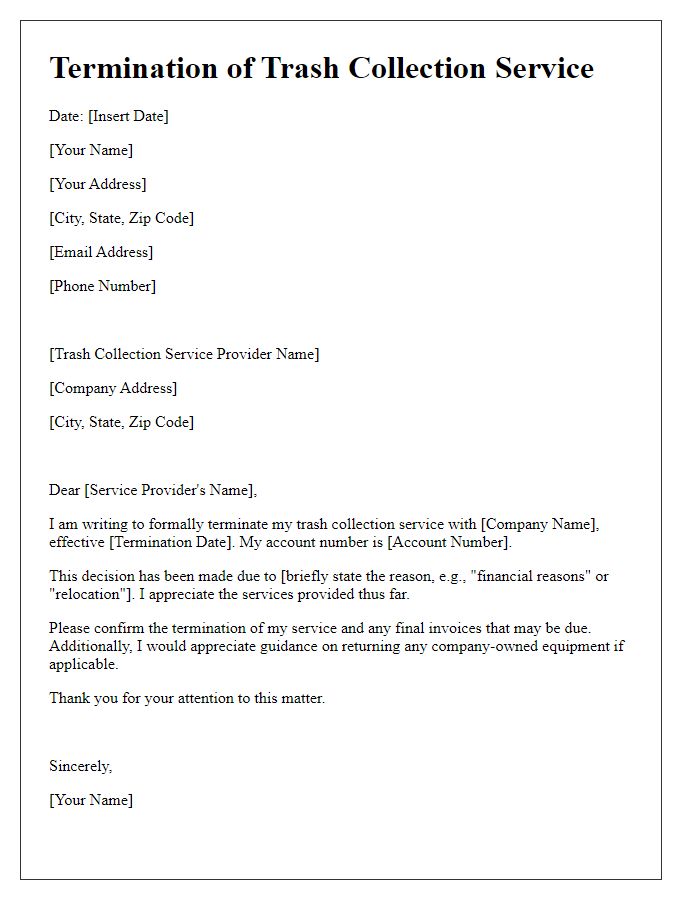
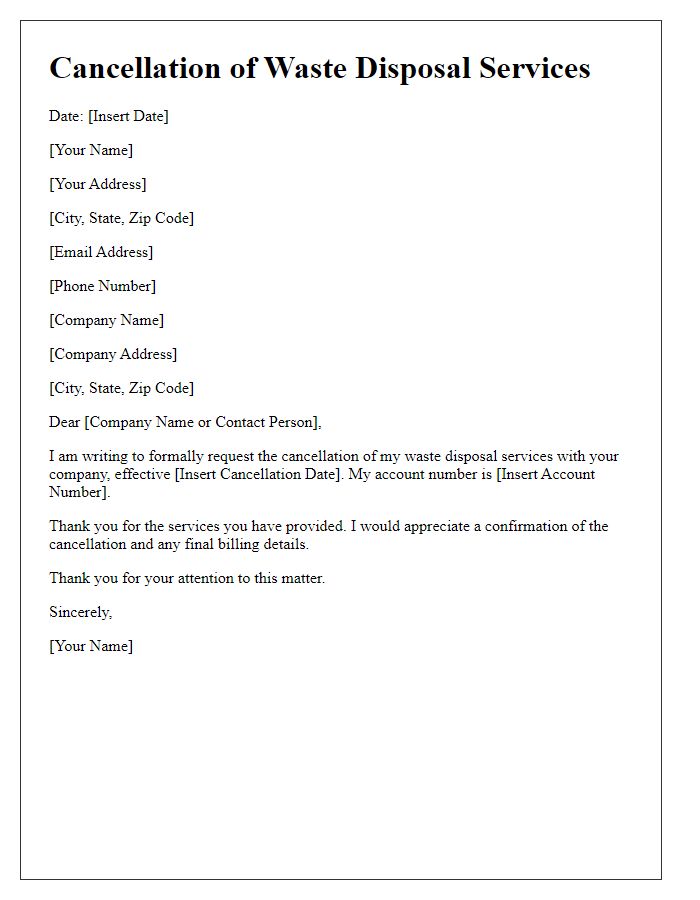
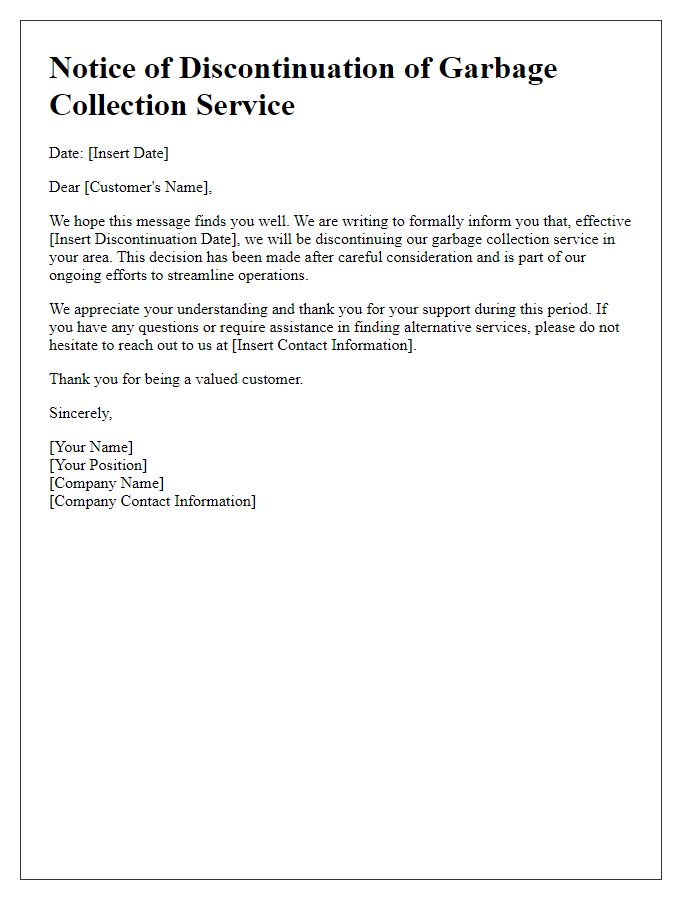
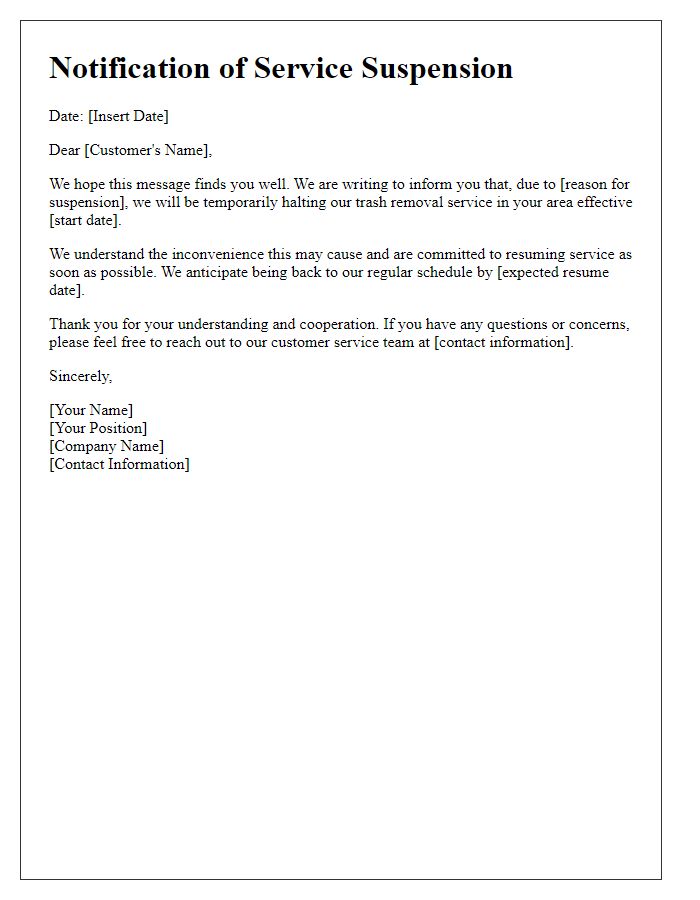
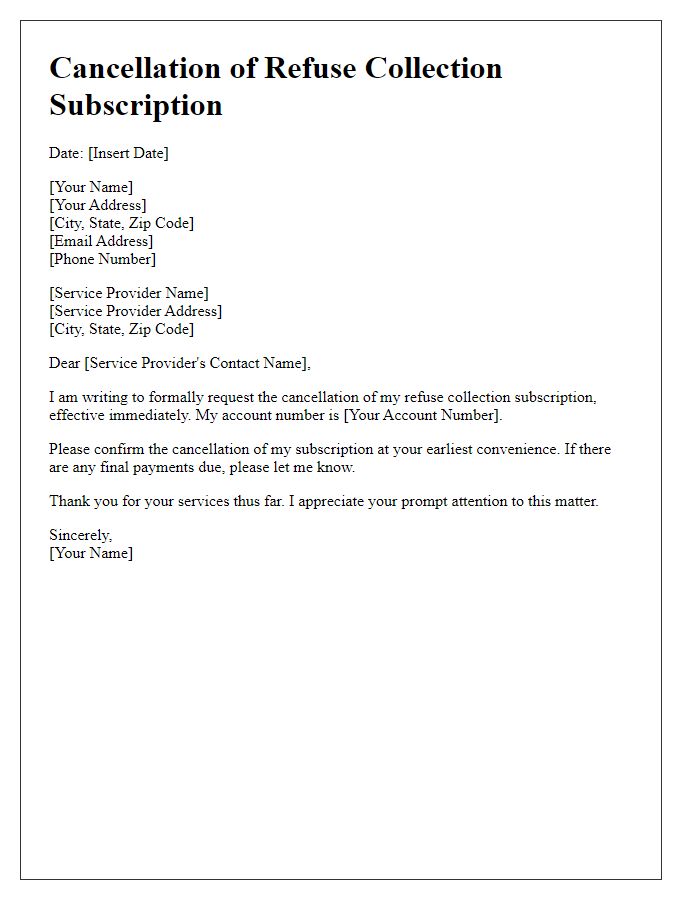
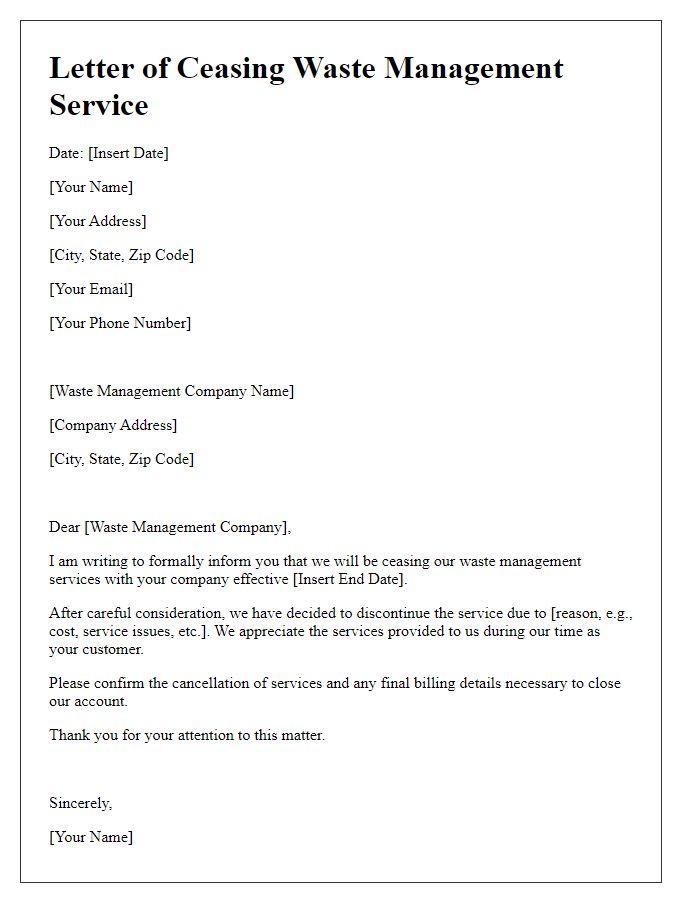
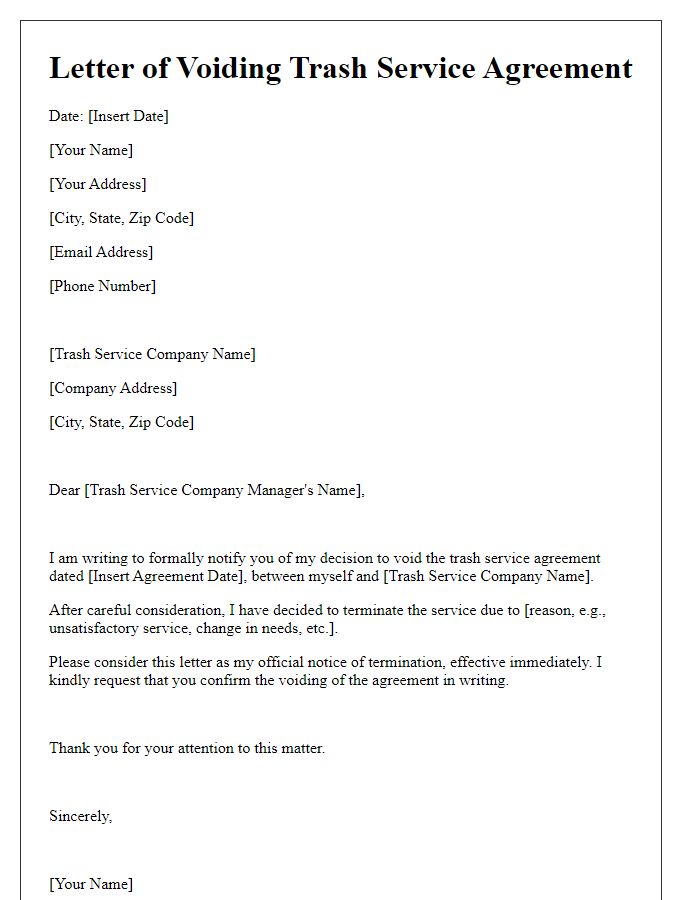
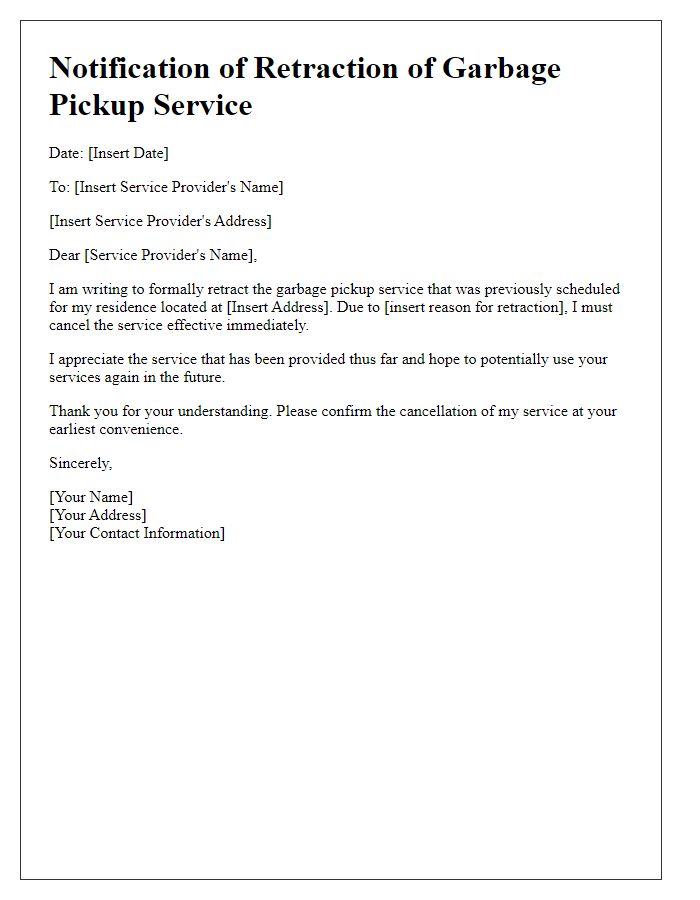
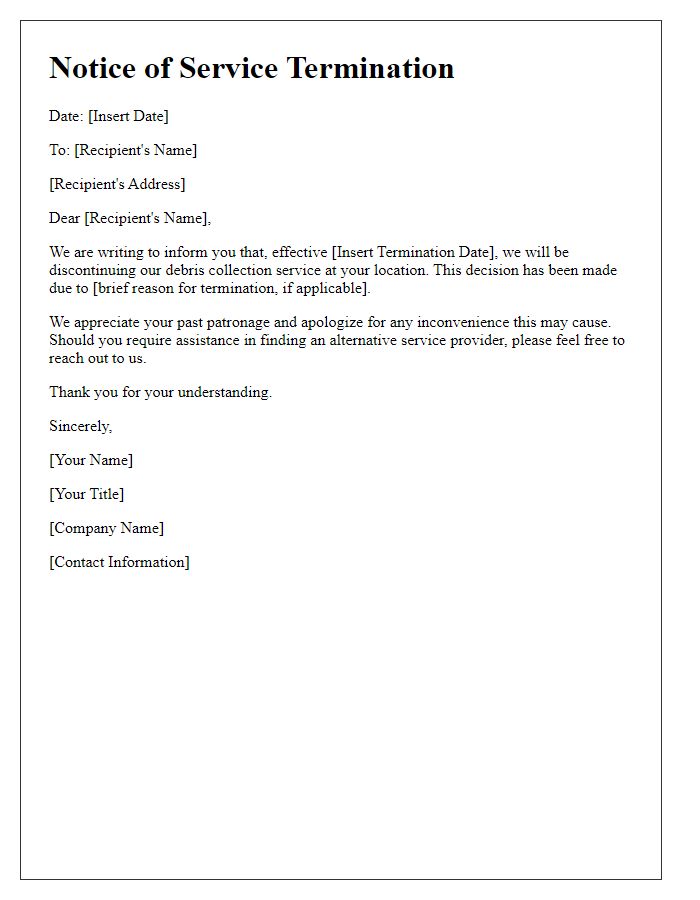
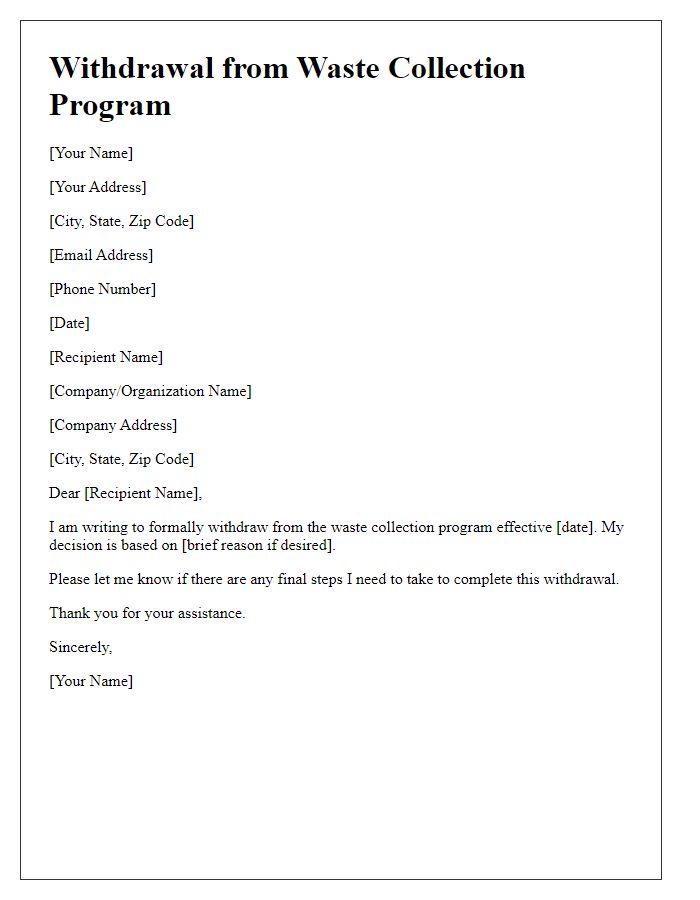


Comments